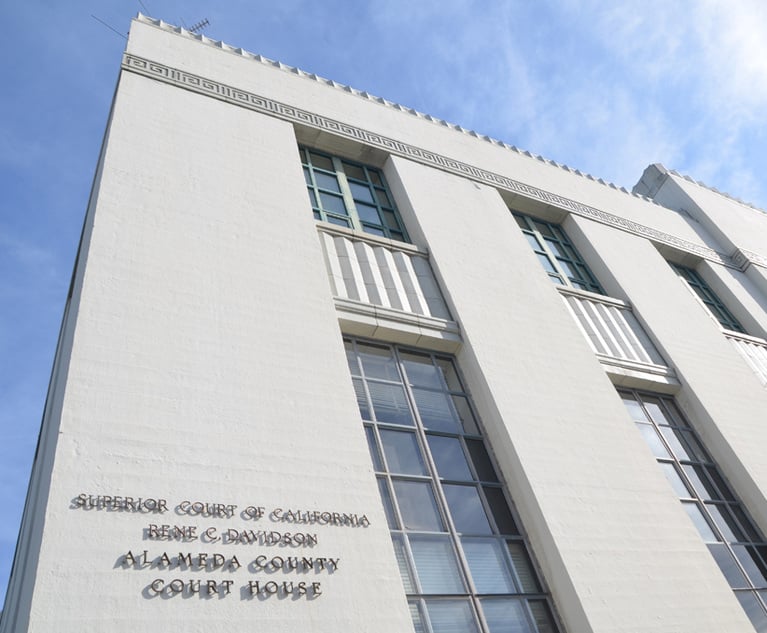Hyatt v. Yee
9th Cir.; 15-15296 The court of appeals affirmed a judgment. The court held that because California law provides a “plain, speedy and efficient…
September 27, 2017 at 05:41 PM
3 minute read
9th Cir.;
15-15296
The court of appeals affirmed a judgment. The court held that because California law provides a “plain, speedy and efficient remedy” for resolving taxpayer disputes, the Tax Injunction Act barred the district court from intervening.
In 1997, the California Franchise Tax Board (FTB) assessed Gilbert Hyatt some $7.4 million in taxes in income earned in 1991 and 1992. Without first paying his taxes, Hyatt challenged his tax bill on the grounds that he was a resident of Nevada during 1991 and 1992. The FTB issued a decision 11 years later upholding the assessment. Hyatt appealed that determination to the California State Board of Equalization (SBE). That appeal, filed in 2008, remained pending. In 2014, Hyatt filed suit against the FTB and SBE under 42 U.S.C. §1983, seeking to enjoin the pending administrative tax review process. Hyatt alleged violations of the due process and equal protection clauses of the Fourteenth Amendment, and alleged that he “can no longer receive a full and fair adjudication on the merits due to the extreme passage of time and resulting loss of material evidence.” He claimed that during the long delay in the administrative process, “material witnesses have passed away, memories of witnesses have faded, and documents relevant and important to Hyatt are no longer available.” In addition, his tax bill, with interest, had ballooned to over $55 million.
This content has been archived. It is available through our partners, LexisNexis® and Bloomberg Law.
To view this content, please continue to their sites.
Not a Lexis Subscriber?
Subscribe Now
Not a Bloomberg Law Subscriber?
Subscribe Now
NOT FOR REPRINT
© 2025 ALM Global, LLC, All Rights Reserved. Request academic re-use from www.copyright.com. All other uses, submit a request to [email protected]. For more information visit Asset & Logo Licensing.
You Might Like
View All

Fresh lawsuit hits Oregon city at the heart of Supreme Court ruling on homeless encampments
4 minute read
Trending Stories
- 1New FCC Chair Hires Section 230 Critic as General Counsel
- 2Sylvia Favretto Elevated to Mysten Labs’ General Counsel
- 3Vanessa Roberts Avery Rejoins McCarter & English
- 4Charlie Javice Jury Will Not See Her Texts About Elizabeth Holmes
- 5Unit Owners Sued Board For Failure To Maintain Adequate Fire Insurance: This Week In Scott Mollen’s Realty Law Digest
Who Got The Work
J. Brugh Lower of Gibbons has entered an appearance for industrial equipment supplier Devco Corporation in a pending trademark infringement lawsuit. The suit, accusing the defendant of selling knock-off Graco products, was filed Dec. 18 in New Jersey District Court by Rivkin Radler on behalf of Graco Inc. and Graco Minnesota. The case, assigned to U.S. District Judge Zahid N. Quraishi, is 3:24-cv-11294, Graco Inc. et al v. Devco Corporation.
Who Got The Work
Rebecca Maller-Stein and Kent A. Yalowitz of Arnold & Porter Kaye Scholer have entered their appearances for Hanaco Venture Capital and its executives, Lior Prosor and David Frankel, in a pending securities lawsuit. The action, filed on Dec. 24 in New York Southern District Court by Zell, Aron & Co. on behalf of Goldeneye Advisors, accuses the defendants of negligently and fraudulently managing the plaintiff's $1 million investment. The case, assigned to U.S. District Judge Vernon S. Broderick, is 1:24-cv-09918, Goldeneye Advisors, LLC v. Hanaco Venture Capital, Ltd. et al.
Who Got The Work
Attorneys from A&O Shearman has stepped in as defense counsel for Toronto-Dominion Bank and other defendants in a pending securities class action. The suit, filed Dec. 11 in New York Southern District Court by Bleichmar Fonti & Auld, accuses the defendants of concealing the bank's 'pervasive' deficiencies in regards to its compliance with the Bank Secrecy Act and the quality of its anti-money laundering controls. The case, assigned to U.S. District Judge Arun Subramanian, is 1:24-cv-09445, Gonzalez v. The Toronto-Dominion Bank et al.
Who Got The Work
Crown Castle International, a Pennsylvania company providing shared communications infrastructure, has turned to Luke D. Wolf of Gordon Rees Scully Mansukhani to fend off a pending breach-of-contract lawsuit. The court action, filed Nov. 25 in Michigan Eastern District Court by Hooper Hathaway PC on behalf of The Town Residences LLC, accuses Crown Castle of failing to transfer approximately $30,000 in utility payments from T-Mobile in breach of a roof-top lease and assignment agreement. The case, assigned to U.S. District Judge Susan K. Declercq, is 2:24-cv-13131, The Town Residences LLC v. T-Mobile US, Inc. et al.
Who Got The Work
Wilfred P. Coronato and Daniel M. Schwartz of McCarter & English have stepped in as defense counsel to Electrolux Home Products Inc. in a pending product liability lawsuit. The court action, filed Nov. 26 in New York Eastern District Court by Poulos Lopiccolo PC and Nagel Rice LLP on behalf of David Stern, alleges that the defendant's refrigerators’ drawers and shelving repeatedly break and fall apart within months after purchase. The case, assigned to U.S. District Judge Joan M. Azrack, is 2:24-cv-08204, Stern v. Electrolux Home Products, Inc.
Featured Firms
Law Offices of Gary Martin Hays & Associates, P.C.
(470) 294-1674
Law Offices of Mark E. Salomone
(857) 444-6468
Smith & Hassler
(713) 739-1250







